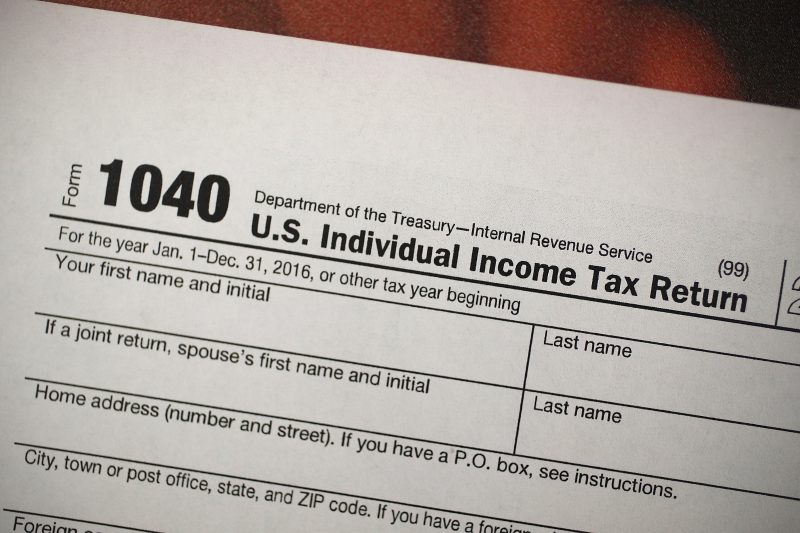US taxpayers face bitter surprise after Trump’s tax cuts
US taxpayers are finding the refund they were expecting has shriveled or turned into a tax bill, prompting anger at President Donald Trump (JOE RAEDLE)
Washington (AFP) – Some taxpayers are getting a bitter surprise this year as their usual annual tax refunds have shrunk — or turned into tax bills — even though the President Donald Trump loudly promised them largest tax cut “in American history.”
And with tax season underway, thousands of unhappy taxpayers have been venting their displeasure on Twitter, using hashtags like #GOPTaxscam, and some threatened not to vote for Trump again.
“Lowest refund I have ever had and I am 50 yrs old. No wall and now this tax reform sucks too!!” a woman going by “Speziale-Matheny” wrote from the crucial political swing state of Florida.
“Starting to doubt Trump. I voted for him and trusted him too.”
During the year, American wage earners see a portion of each paycheck withheld as income tax, and many then receive a refund the following year if they have overpaid the federal government. That cash boost eagerly awaited each year, and used to help pay off debt or make large purchases.
But the 2017 tax overhaul — which Republicans promoted as a boon to the middle class — meant many workers paid less in taxes during the year, and their withholdings were reduced, a change which may have gone unnoticed.
And the reform also cut some popular deductions, sometimes resulting in thinner refunds or even unexpected tax bills.
Early data from the US Internal Revenue Service show that refunds so far this year are 8.4 percent lower than 2018 payouts on average, falling to $1,865 from $2,035.
However, many millions more taxpayers will be filing tax returns by the annual April 15 deadline, meaning this figure could change.
Mark Mazur, assistant Treasury secretary for tax policy under former President Barack Obama, told AFP the negative reaction was “understandable.”
“People focused on the amount of the refund but that’s not the same as their tax liability, the amount of tax they pay for the year,” he said.
Because of lower withholding during the year, some taxpayers have in effect already saw the benefit of the tax cut in their higher paychecks, said Mazur, who is vice president at the Urban Institute.
About five percent of taxpayers — about 7.5 million people — will in fact see a tax increase, while about 80 percent should pay less, he said.
– ‘Angry, disappointed and betrayed’ –
A key change of the 2017 tax reform is it limited federal deductions for certain state and local taxes like real estate taxes. As a result, many home owners in states with higher property taxes will owe more to the federal government.
Neil Frankel, a New York accountant, told AFP people were feeling “angry, disappointed and betrayed.”
“I sympathize with them. The new tax law’s withholding tables were incorrect and misleading. A complete shenanigan,” he added.
“Since my clients are mostly professionals, I don’t really hear any screaming,” he said. “However, I do hear long diatribes on hatred for the US government.”
Last year, Treasury Secretary Steven Mnuchin invited taxpayers to use an online calculator to estimate their tax payments, to determine if they should modify their withholding amount.
This week the Treasury Department said media reports on the lower refunds were “misleading.”
“Refunds are consistent with 2017 levels and down slightly from 2018 based on a small, initial sample from only a few days of data,” the department said on Twitter.
But, Mazur said, perception is key: When the administration of former President George W. Bush cut taxes in 2001, it mailed out checks directly.
“Taxpayers remembered that they got that check,” he said.
But under Obama a tax cut showed up as smaller withholdings and fatter checks during each pay cycle.
“Most Americans when they were surveyed didn’t think they got a tax cut from Obama,” he said.
Disclaimer: This story is published from a syndicated feed. Siliconeer does not assume any liability for the above story. Validity of the above story is for 7 Days from original date of publishing. Content copyright AFP.


